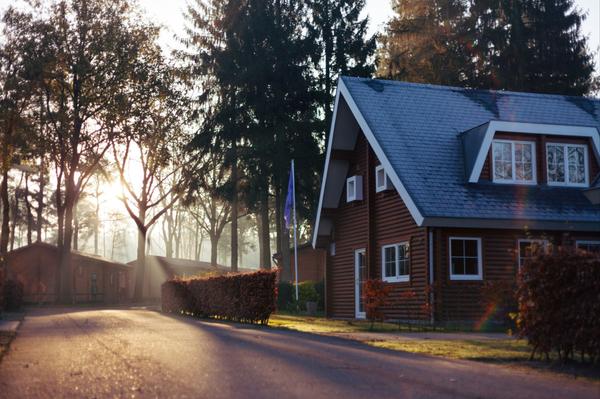What You Need To Know About Flipping Houses in Real Estate

Real estate flipping is a popular way for people to make money through smart investments. It involves buying a property at a low price, fixing it up, and then selling it quickly for a profit. To succeed in flipping real estate, you need to know the local market well and understand what styles are popular right now. Spending time researching different neighborhoods, building relationships with trustworthy contractors, and keeping an eye on changes in prices are all key to success in flipping real estate. If you're going to flip a home, make sure you have the cash, time, skills, knowledge, and patience before you lose out.
How to Find Properties to Flip
Discovering a property to flip requires more than just browsing online like you would for a new home. Here's how you can find potential flip properties:
Connect with Local Agents and Landlords
Reach out to your local real estate agent and start building a rapport. Often, finding a promising property to flip relies on having good connections, so speaking to agents and landlords in your target area is key. Inform your local agent that you're in the market for a quick purchase, which may appeal to sellers with similar intentions.
Explore Online Portals
Search for listings online labeled as "fixer-uppers" or "distressed properties" and consider properties with a high square footage to low bedroom ratio (e.g., a 2,500 square feet property with two bedrooms). These properties might offer room for expansion or renovation, which could enhance your potential profit upon resale.
Attend Property Auctions
Auctions often present fertile ground for property flippers, as homes in need of significant renovation work are frequently up for auction. Keep in mind that purchasing at auction typically requires immediate access to funds, including a deposit available on the day of the auction.
Important Considerations for Finding Flip Properties
Success in property flipping hinges on thorough research. Here are key factors to consider:
Location
Choose an area where buyers are active and interested in purchasing homes rather than just investors. Speak to local agents to understand property sales trends and monitor online portals to gauge listing turnover. Additionally, consider factors like proximity to transport links, schools, and amenities.
Target Market
Understand the demographics of the area and the preferences of potential buyers. Tailor your renovation and property layout to match the expectations of your target market, whether they are families, young professionals, or couples buying their first home.
Seller's Situation
Gather information about the seller's motivation for selling. Knowing their urgency to sell can help you negotiate a favorable purchase price, maximizing your profit potential.
Purchase Price
The price you pay for the property significantly impacts your profit margin. Avoid overpaying, as it could erode your potential profits before renovations even begin.
Renovation Costs and Timeline
Consider the renovation costs and timeline carefully. Ensure that your renovation aligns with the expectations of potential buyers and the local market.
On average, flipping a house typically takes around three to six months from the initial purchase to selling the renovated property. However, the timeline can vary depending on the scope of the project. While some flips may be completed within a month, others may require more extensive renovations and could take longer to finish. It's essential to consider the specific requirements of each project when estimating the time needed for a successful house flip.
Risk Factors
Property flipping, while potentially lucrative, comes with significant risks. Investing substantial sums upfront means that if the flip doesn't turn a profit, you could lose a considerable amount of money.
Moreover, external factors such as a downturn in the property market or economic changes can impact your returns, as can unexpected increases in renovation costs or delays. Despite the risks, a successful property flip has the potential to yield substantial profits within a short timeframe.
Sale Price
Research comparable properties' sale prices in the area to estimate your property's post-renovation value. Consult with your Realtor and analyze recent sales data to determine a realistic sale price.
By meticulously evaluating these factors, you can increase your chances of success in property flipping.
Financing Your Property Flip
Securing funding for a property flip can be challenging due to restrictions from mortgage lenders. Here's why:
Property Condition
Many lenders hesitate to finance property flips because the property may not be in livable condition at the time of purchase. Additionally, mortgage terms often include clauses requiring the property to be owned for a minimum period before selling.
However, alternative funding options include:
Cash Purchase
Using cash to buy and renovate the property is straightforward, but consider the liquidity of your funds if you plan to move on to another project quickly.
Bridging Finance
Bridging loans offer short-term financing for property flips, covering both the purchase and renovation costs. Keep in mind that these loans typically come with high-interest rates, so be mindful of the impact on your profits.
Additional Costs
In addition to funding, consider other expenses such as solicitor fees, estate agent commissions, survey fees, finance charges, insurance, property taxes, and utility bills during renovation.
3 Tips for Successful House Flipping
If you're considering diving into the world of house flipping, here are three key tips to boost your chances of success:
Thorough Research
Before making any moves, it's crucial to do your homework. Familiarize yourself with the local market by researching comparable property sales and their time on the market. This will give you a realistic expectation of potential profits and timelines.
Develop a Solid Plan
Having a well-defined plan is essential for a successful house flip. Before you begin any renovations, outline your goals and budget carefully. This will help you avoid costly mistakes and ensure your project stays on track.
Partner with a Real Estate Agent
A reputable real estate agent can be a valuable ally in your house flipping journey. They can provide invaluable insights, help you locate properties before they hit the market, and guide you through the process from start to finish. At Luxe Omni, we've got the expertise you need to excel in the world of flipping houses. We can guide you through the step by step process to show you the ropes and maximize your investment
Categories
Recent Posts










